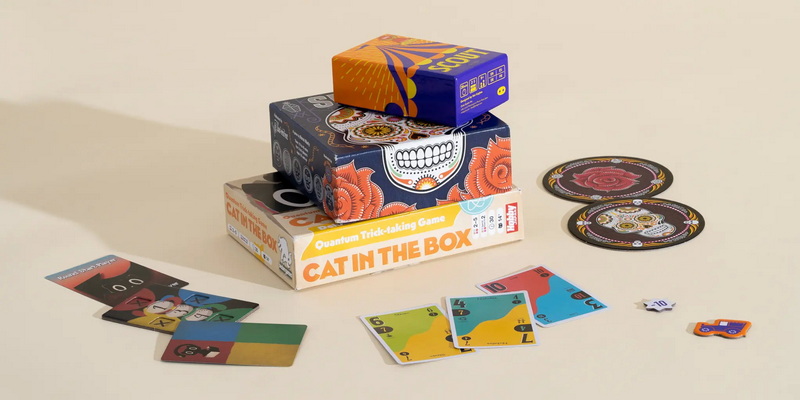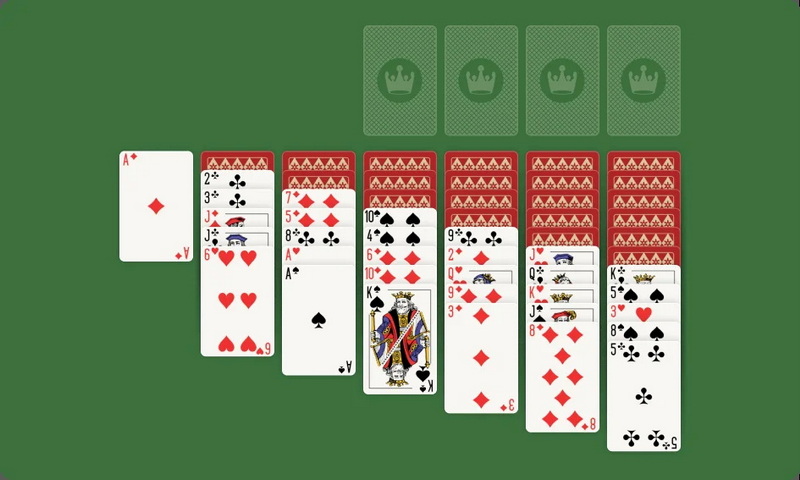Content Menu
● Bridge
>> Overview
>> Complexity
>> Strategies
● Magic: The Gathering
>> Overview
>> Complexity
>> Strategies
● Pinochle
>> Overview
>> Complexity
>> Strategies
● Canasta
>> Overview
>> Complexity
>> Strategies
● Poker
>> Overview
>> Complexity
>> Strategies
● Cribbage
>> Overview
>> Complexity
>> Strategies
● Rummy
>> Overview
>> Complexity
>> Strategies
● Conclusion
● Related Questions
>> 1. What makes Bridge the hardest card game?
>> 2. How does Magic: The Gathering differ from traditional card games?
>> 3. What are the key strategies for winning at Pinochle?
>> 4. Why is Canasta considered a challenging game?
>> 5. What skills are essential for success in Poker?
● Citations:
Card games have been a source of entertainment and challenge for centuries, captivating players with their strategic depth and complexity. Among the myriad of card games available, some stand out for their difficulty and the level of skill required to master them. This article delves into the hardest card games, exploring their rules, strategies, and what makes them particularly challenging.

Bridge
Overview
Bridge is widely regarded as the hardest card game to play. It is a trick-taking game that requires four players, divided into two partnerships. The game is played with a standard 52-card deck, and the objective is to win as many tricks as possible.
Complexity
The complexity of Bridge arises from its intricate bidding system and the need for precise communication between partners. Players must not only manage their own hands but also anticipate their partner's moves and the opponents' strategies. The game involves a deep understanding of probability, strategy, and partnership dynamics, making it a formidable challenge for beginners and seasoned players alike.
Strategies
To excel in Bridge, players must develop a strong grasp of bidding conventions, card play techniques, and defensive strategies. Successful players often spend years honing their skills, participating in tournaments, and studying advanced strategies. Key strategies include:
- Bidding Systems: Understanding various bidding systems like Standard American or Acol can significantly enhance a player's performance.
- Card Play: Knowing when to play high cards or when to hold back can change the outcome of a trick.
- Defensive Play: Anticipating opponents' moves and communicating effectively with your partner is crucial.
Magic: The Gathering
Overview
Magic: The Gathering (MTG) is a collectible card game that combines strategy, fantasy, and deck-building. Players assume the role of powerful wizards, casting spells and summoning creatures to defeat their opponents.
Complexity
The complexity of MTG lies in its vast array of cards, each with unique abilities and interactions. Players must build their decks strategically, considering synergies and counter-strategies against their opponents. The game also features a deep lore and multiple formats, adding layers of complexity to gameplay.
Strategies
To succeed in MTG, players must understand the metagame, which refers to the current trends and strategies in competitive play. Mastering deck construction, resource management, and timing of spells is crucial for victory. Important strategies include:
- Deck Building: Creating a balanced deck that can handle various threats is essential.
- Resource Management: Knowing when to play cards and when to hold back can be the difference between winning and losing.
- Reading Opponents: Understanding your opponent's strategy and adapting your playstyle accordingly is vital.
Pinochle
Overview
Pinochle is a trick-taking card game typically played with four players in two partnerships. The game uses a 48-card deck, consisting of two copies of the 9, 10, Jack, Queen, King, and Ace of each suit.
Complexity
Pinochle's complexity stems from its unique scoring system and the need for effective communication between partners. Players must meld cards to score points and win tricks, requiring a balance of offensive and defensive play.
Strategies
Successful Pinochle players must develop strong bidding skills, understand the importance of melds, and be adept at both offensive and defensive strategies. The game rewards players who can read their opponents and adapt their strategies accordingly. Key strategies include:
- Melding: Knowing which cards to meld for maximum points is crucial.
- Bidding: Effective bidding can set the tone for the game and influence the outcome.
- Defensive Play: Anticipating opponents' moves and countering them effectively is essential.
Canasta
Overview
Canasta is a card game of the Rummy family, typically played with two decks of cards. The objective is to form melds of seven cards of the same rank and to score points by playing cards from your hand.
Complexity
The complexity of Canasta arises from its unique rules regarding melds, the use of wild cards, and the strategic decisions involved in drawing and discarding cards. Players must also consider the potential for their opponents to form melds and score points.
Strategies
To excel in Canasta, players must develop a keen sense of timing, manage their hand effectively, and anticipate their opponents' moves. Understanding when to go out and how to maximize points is crucial for success. Important strategies include:
- Melding Wisely: Knowing when to meld and when to hold cards can change the game.
- Card Management: Keeping track of what cards have been played can help in predicting opponents' hands.
- Timing: Deciding when to go out can be a game-changer.

Poker
Overview
Poker is a popular card game that encompasses various formats, including Texas Hold'em, Omaha, and Seven-Card Stud. The objective is to win chips by either having the best hand or convincing opponents to fold.
Complexity
The complexity of Poker lies in its blend of skill, psychology, and chance. Players must read their opponents, manage their bankroll, and make strategic decisions based on incomplete information.
Strategies
Successful Poker players develop a strong understanding of odds, betting strategies, and psychological tactics. Mastering the art of bluffing and reading opponents is essential for long-term success in the game. Key strategies include:
- Understanding Odds: Knowing the odds of completing a hand can inform betting decisions.
- Bluffing: Successfully bluffing can lead to significant wins, but it requires skill and timing.
- Reading Opponents: Observing opponents' behaviors and betting patterns can provide valuable insights.
Cribbage
Overview
Cribbage is a unique card game that combines elements of strategy and luck. It is played with a standard 52-card deck and involves two to four players. The objective is to be the first to score 121 points, which is tracked on a distinctive cribbage board.
Complexity
The complexity of Cribbage arises from its unique scoring system, which includes points for combinations of cards and the ability to create a "crib" (a separate hand that can score additional points). Players must also consider the strategic implications of discarding cards to the crib.
Strategies
To excel in Cribbage, players must develop a strong understanding of scoring combinations and the strategic use of the crib. Important strategies include:
- Card Selection: Choosing which cards to keep and which to discard to the crib can significantly impact scoring.
- Counting Points: Being able to quickly calculate potential points from combinations is essential.
- Defensive Play: Understanding what cards your opponent might be holding can help in making strategic decisions.
Rummy
Overview
Rummy is a group of matching-card games that involve forming sets or runs of cards. The game can be played with two or more players and typically uses a standard deck of cards.
Complexity
The complexity of Rummy varies depending on the specific variant being played. However, the core challenge lies in the need to form melds while also keeping track of opponents' moves and potential melds.
Strategies
To succeed in Rummy, players must develop strong memory skills and strategic thinking. Key strategies include:
- Observation: Keeping track of what cards opponents pick up and discard can provide insights into their hands.
- Melding: Knowing when to meld and when to hold cards can influence the game's outcome.
- Timing: Deciding when to go out can be crucial for maximizing points.
Conclusion
In conclusion, the hardest card games challenge players not only in terms of skill and strategy but also in their ability to communicate and adapt to their opponents. Games like Bridge, Magic: The Gathering, Pinochle, Canasta, Poker, Cribbage, and Rummy each offer unique complexities that require dedication and practice to master. Whether you are a casual player or a competitive enthusiast, these games provide endless opportunities for growth and enjoyment.

Related Questions
1. What makes Bridge the hardest card game?
Bridge is considered the hardest card game due to its complex bidding system, the need for precise communication between partners, and the strategic depth required to anticipate opponents' moves.
2. How does Magic: The Gathering differ from traditional card games?
Magic: The Gathering differs from traditional card games in that it involves deck-building, a vast array of unique cards, and a deep lore, making it a complex and strategic game.
3. What are the key strategies for winning at Pinochle?
Key strategies for winning at Pinochle include effective bidding, understanding melds, and balancing offensive and defensive play to outmaneuver opponents.
4. Why is Canasta considered a challenging game?
Canasta is considered challenging due to its unique rules regarding melds, the use of wild cards, and the strategic decisions involved in managing one's hand and anticipating opponents' moves.
5. What skills are essential for success in Poker?
Essential skills for success in Poker include understanding odds, developing betting strategies, reading opponents, and mastering the psychological aspects of the game.
Citations:
[1] https://www.gamblingsites.com/blog/hard-card-games-difficult-to-learn-play/
[2] https://ffg-forum-archive.entropicdreams.com/topic/283936-game-difficulty-level-or-mistakes/
[3] https://www.gameslearningsociety.org/which-card-game-is-hardest-to-play/
[4] https://www.casino.org/blog/5-hardest-games-in-the-world-to-master/
[5] https://pmc.ncbi.nlm.nih.gov/articles/PMC10004480/
[6] https://mykindofmeeple.com/what-are-the-hardest-trading-card-games/
[7] https://www.reddit.com/r/FiftyTwoCards/comments/1e1h1z0/what_are_the_most_difficult_card_games_you_have/
[8] https://www.reddit.com/r/gamedesign/comments/1d4ihe7/how_do_tcg_video_games_create_difficulty_that/
[9] https://www.technologyreview.com/2019/05/07/135482/magic-the-gathering-is-officially-the-worlds-most-complex-game/
































